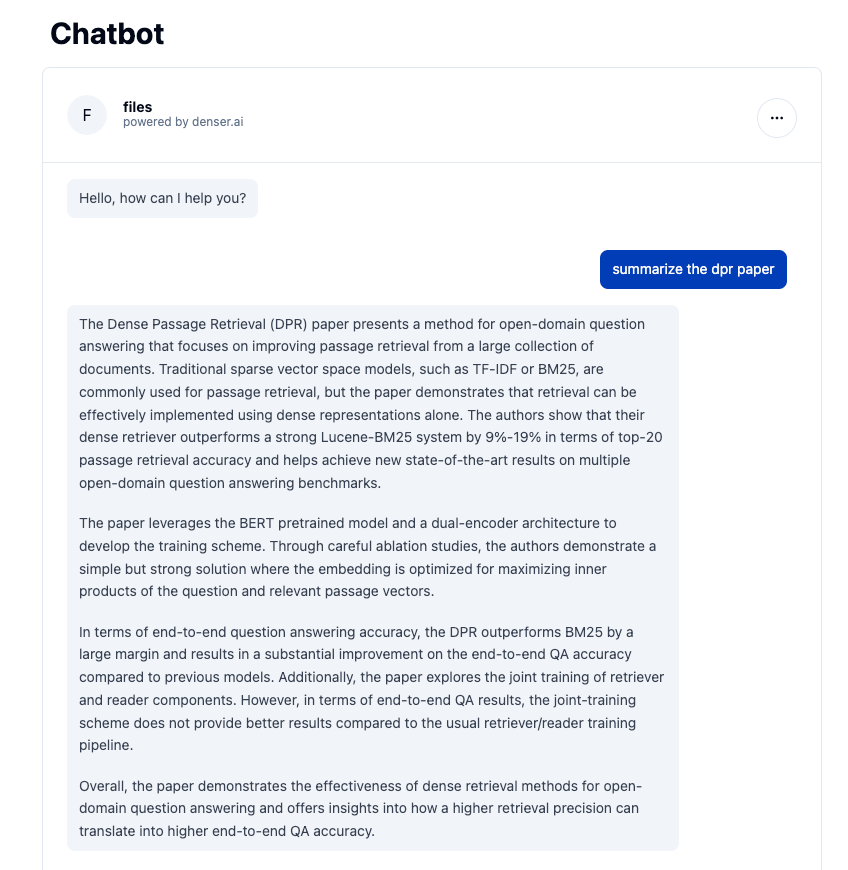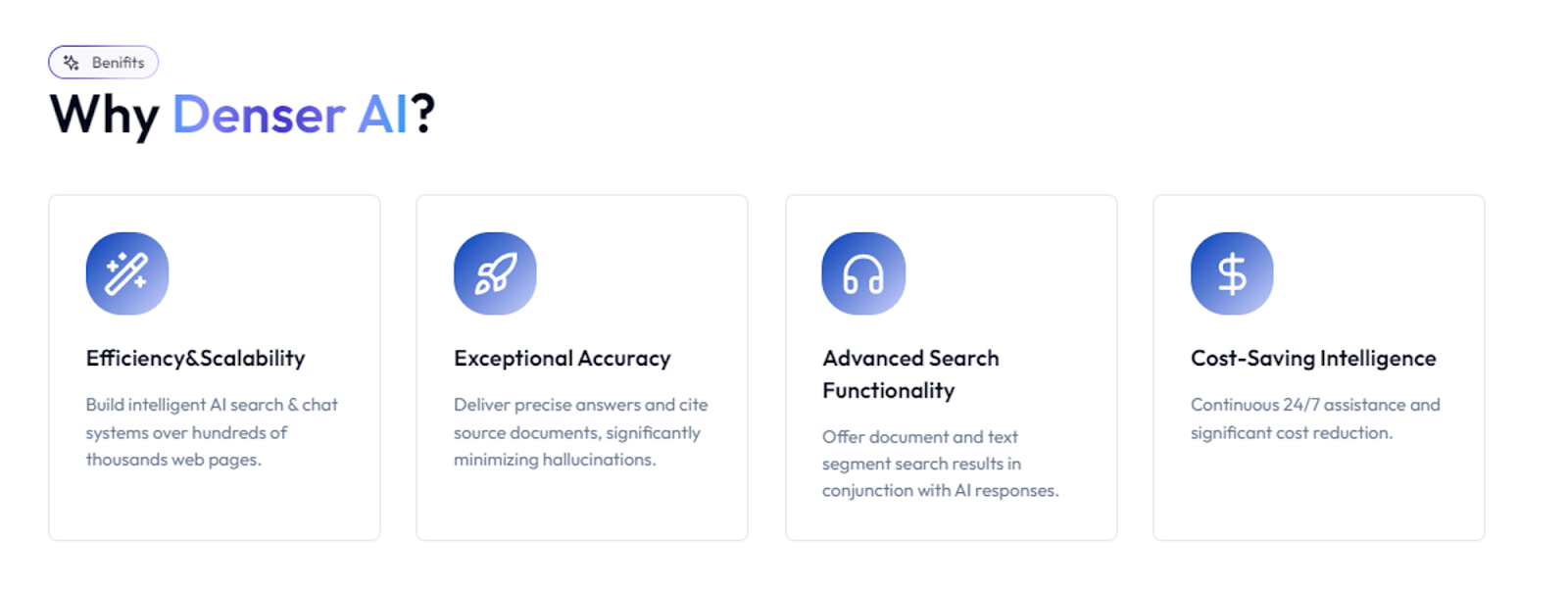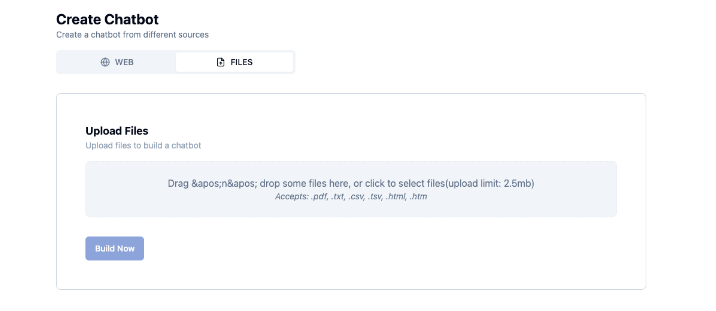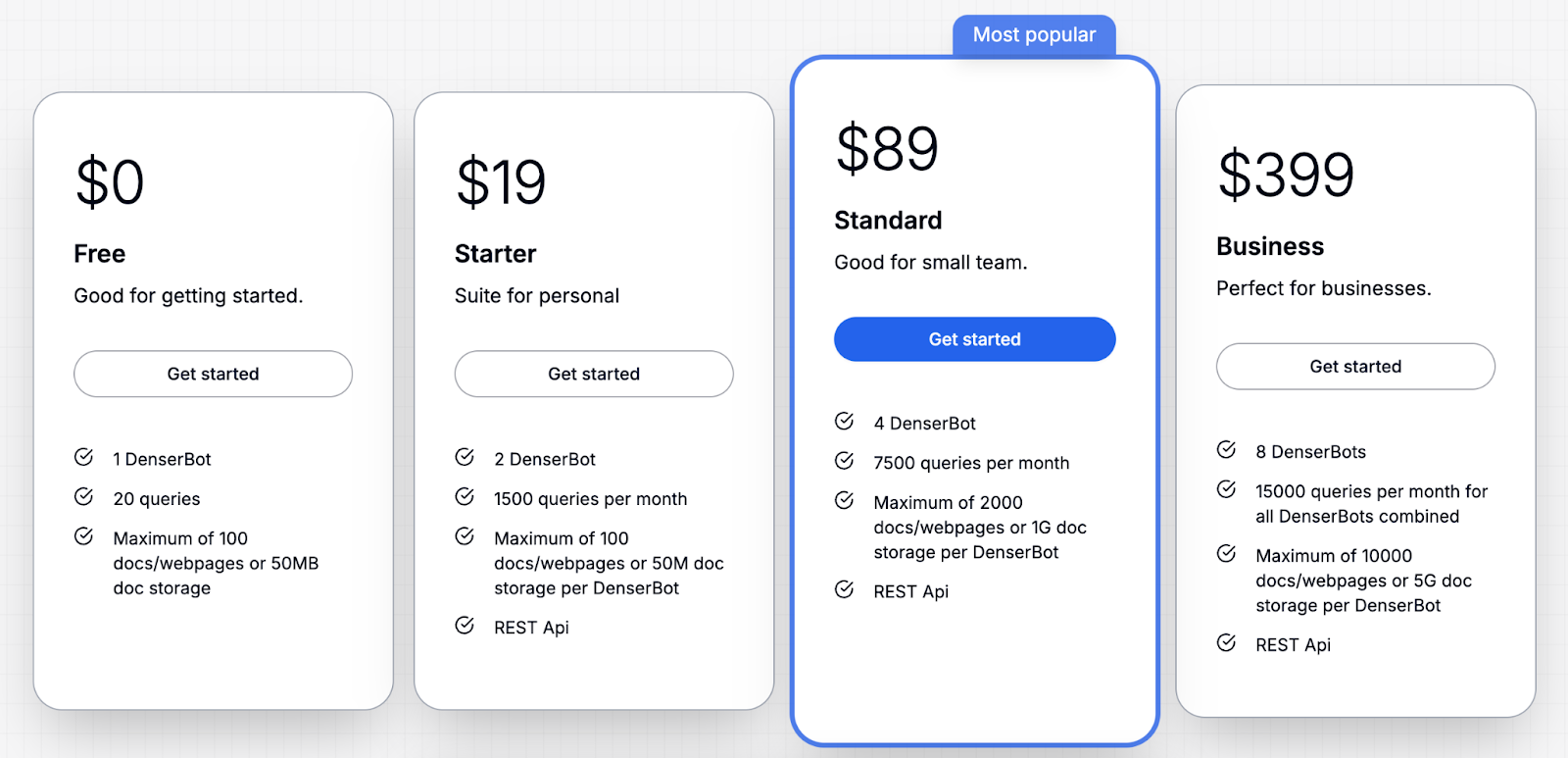Traditional search methods rely on exact keyword matches and often miss the mark, which can frustrate users with irrelevant results. This is where intelligent document search offers a smarter way to find information.
Smarter search tools make a difference. They get what you're looking for, even if you phrase it differently, and give you the right results faster.
An intelligent document processing solution is a step up from the usual search as it can understand your search's intent, making finding information quicker and more straightforward.
In this article, we’ll explore how it works, the benefits it brings, and how to integrate it into your website.
How Intelligent Document Search Works
Intelligent document search streamlines how we find information in documents, moving beyond simple keyword searches to deliver contextually relevant results.
Here's a breakdown of its workings:
Data Ingestion
It can extract data from various sources and crawl your unstructured data and structured data. It will convert the scanned documents into a uniform format for analysis.
Understanding Context and Semantics
It uses Natural Language Processing (NLP) to understand the context and semantics of text, identifying the intended meaning behind words and phrases.
Intelligent document search process search queries by understanding the user's intent, not just the literal words.
Metadata and Indexing
It automatically assigns metadata (like author, date, and topics) to documents and creates indexes that map keywords and concepts to document locations.
This all improves search results and helps users fund the most important information quickly.
Key Features of Intelligent Document Search Systems
Semantic Search
Semantic search goes beyond just looking for keywords. It understands the meaning behind your search queries. By using AI and natural language processing, it picks up on context, synonyms, and the intent behind your words, delivering more relevant and precise results.
This makes searching for anything—whether it's for work, study, or personal information—quicker and more straightforward because it gets what you're actually looking for, not just what you typed in.
Contextual Understanding and Relevance
Contextual understanding in search means it gets the context or the "why" behind your search query, not just the "what." This helps it bring up results that are actually relevant to what you're searching for, making sure you find what you need without having to sift through unrelated info.
It's like the search engine is reading between the lines of your query to give you exactly what you're after.
Support for Multiple Languages and Formats
Support for multiple languages and formats means the search tool can handle searches and documents in various languages and file types, like PDFs or Word docs.
This way, no matter what language you're working in or what type of document you need, the search system's got you covered.
Integration with Existing Data Systems
Integration with existing data systems means the search tool can easily work with the databases and software you already use.
This makes it simple to search across all your information without needing to switch between different systems.
Benefits of Intelligent Document Search

Improved Search Accuracy and Relevance
Precision: Delivers results that closely match the user's intent, reducing the clutter of irrelevant documents.
Context Awareness: Understands the context and semantics of queries, so the results are not just about matching keywords but about fitting the query's meaning.
Time-Saving and Efficiency
**Quick Retrieval: **Users find what they need faster, thanks to intelligent indexing and understanding of document content.
**Reduced Manual Sifting: **Minimizes the need to go through mismatched documents, saving time and effort manually.
Enhanced Knowledge Discovery and Management
**Discover Insights: **Connecting related concepts and topics helps uncover hidden insights within large document sets.
**Organize Content: **Automatically categorizes and indexes documents, making managing and retrieving knowledge assets easier.
Personalization of Search Experiences
**User-Centric: **Adapts to individual search behaviors and preferences, offering personalized search results.
Learning Over Time: Improves its understanding of user needs, refining search outcomes to align closely with what users seek.
Use Cases of Intelligent Document Search
Intelligent document search streamlines information retrieval across many different fields.
Here's how it's applied in key areas:
Business Document Management
Intelligent search quickly locates necessary business documents, such as contracts and reports. It streamlines compliance and efficiency in document management.
Legal Research
This tech speeds up legal research by finding relevant cases and laws fast. It enhances the accuracy and speed of legal work.
Academic Studies
Students and researchers can quickly find the articles they need, making studying and research less of a headache.
Healthcare Records
Fast access to patient records and research supports better healthcare decisions. It improves patient care by providing quick, accurate information.
Government Records
Intelligent search helps government agencies efficiently locate laws and public records, increasing transparency and efficiency in managing public documents.
How to Integrate Denser.ai into Your Website Document Search
Step 1: Sign-up for Denser.ai
Sign up to Denser.ai.

Step 2: Access the Chatbot Home
Once logged in, you'll be directed to the chatbot home page. Here, you'll find an overview of your chatbots and the option to create new ones.
Step 3: Create a New Chatbot
To start building a new chatbot, click the New Bot button. This action takes you to the chatbot-building page.

Step 4: Upload the Files
On the chatbot building page, ensure that the FILES tab is selected. Here, you can upload the documents you wish to make searchable through the chatbot.
A popup dialog window allows you to upload files in supported formats: PDF, TXT, CSV, TSV, HTML, and HTM. Select the files you want to upload and confirm.
Step 5: Build the Chatbot
After uploading your documents, click the Build Now button to initiate the chatbot building process.
This process involves indexing the uploaded files to create a searchable database that the chatbot can use to retrieve information and answer questions related to the content of these documents.
Step 6: Use the Chatbot
Once the chatbot is successfully built, you will be redirected to the chatbot chat page. Here, you can interact with the chatbot by asking questions related to the content of the uploaded files.
For example, you can ask for a summary of a specific document or inquire about specific information contained within the document.
Denser.ai chatbot uses advanced retrieval and large language model (LLM) technologies to provide accurate and contextually relevant responses.
Best Practices for Leveraging Intelligent Document Search
Optimizing Document Formats and Structures
Uniform Formats: Convert documents to uniform formats known for good searchability, such as PDF or HTML. This makes it easier for the search system to process and index your documents.
**Structured Content: **Organize business documents with clear headings, sections, and use of keywords. A well-structured document helps the search algorithm understand and categorize the content more effectively.
**Metadata Use: **Include detailed metadata in your documents, such as titles, authors, and relevant keywords. Metadata helps improve the precision of search results by offering additional context.
Training Your Team
Familiarize with Features: Conduct training sessions to familiarize your team with Denser.ai's search features and capabilities. Understanding how to use the search tool effectively can significantly improve their efficiency in finding information.
Search Best Practices: Educate your team on formulating search queries effectively. This includes using specific keywords and phrases and leveraging any advanced search options available in Denser.ai.
**Feedback Loop: **Encourage your team to provide feedback on the search functionality. User feedback can be invaluable in identifying areas for improvement or additional training needs.
Continuous Improvement
**Regular Updates: **Keep your system updated, as it can introduce cool new features, better search tricks, and fixes for glitches, making your searches work even smoother.
**Monitor Performance: **Use analytics and search performance metrics to monitor how well your search system meets user needs. Look for patterns in search queries that may indicate content gaps or areas for optimization.
Adapt to Changes: Be proactive in adapting your search strategy to accommodate new types of documents, changes in your team's information needs, or updates to the AI chatbot platform.
Start Bringing AI into Search with Denser.ai
Are you looking to improve your site's search engine? Explore Denser AI's smart features by trying out a free trial or scheduling a demo now.

Discover how Denser AI can refine user interactions, drive lead generation, and simplify information discovery on your platform. Begin your journey to a more streamlined and engaging website today.
FAQs About Intelligent Document Search
How does intelligent document search deal with duplicate content?
These systems can identify duplicate information across different documents, helping to ensure that search results are not cluttered with repetitive content.
What are the ongoing costs associated with maintaining an intelligent document search system?
Costs can include software updates, system scaling to handle more data, and potentially additional training for the AI models as new document types.
Can intelligent document search help in dealing with unstructured data?
Yes, intelligent document search is particularly effective in managing unstructured documents, which includes various forms of information like emails, PDFs, and social media content that don't fit into traditional database formats.
How does intelligent document search improve data security?
Intelligent document search systems can be equipped with security protocols that restrict access based on user roles and ensure that sensitive data is only accessible to authorized personnel.
